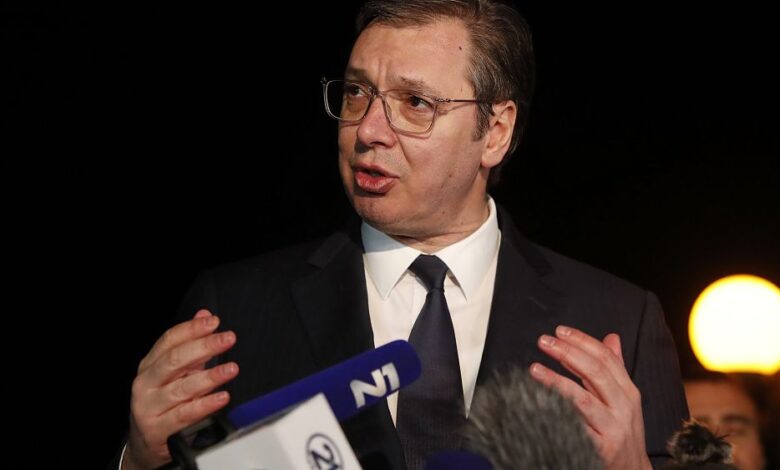EU-brokered deal between Serbia and Kosovo is based on a gentleman’s agreement


After an EU-brokered deal by the EU’s foreign-policy chief, Josep Borrell, between Serbian President Aleksandar Vučić and Kosovo Prime Minister Albin Kurti in Ohrid with European mediators, created at a summit last Saturday, a lot remains unclear and subject to interpretation.
The deal is based on a gentleman’s agreement because the Serbian party did not sign the document.
Miroslav Lajčak, EU Envoy for Serbia and Kosovo Dialogue explained to Euronews Serbia “Our preference, as the EU facilitator, was to have the document signed. And this was our proposal to the parties. (Yet) President Vucic made it quite clear that he was not in a position to sign this document. He was citing constitutional limitations. We made several proposals on how to address this issue, but they were refused.”
According to international law experts (and Article 3 of the Vienna Convention on Contract Law), oral agreements can be valid and binding. Serbian president clarifies his position.
Aleksandar Vučić, President of Serbia said, “For Serbia, it is legally binding when I put a signature or stamp on something, or when I verbally agree to it. And no one else can produce a legal consequence for the Republic of Serbia, except for its president and, in some cases, the prime minister and the minister of foreign affairs”
Diplomatic vocabulary is often subject to various interpretations. Kosovan Albanian citizens in Pristina are also confused and sceptical.
“Every agreement that was made in the past was an agreement with a guarantor, while this one has neither a signatory nor a guarantor. So I have no faith that something can be done.”
“I doubt its success because I see it as an agreement without signature. It has some kind of effect, but I have doubts, because without a signature there may be changes from what the parties may have agreed on”
Despite the moderate and diplomatic due optimism of the EU negotiators a normalization of relations between Kosovo and Serbia by the end of March seems unlikely. Gabriel Escobar, the American negotiator in this process now mentions the end of 2023 as a new deadline for solving the problem.



